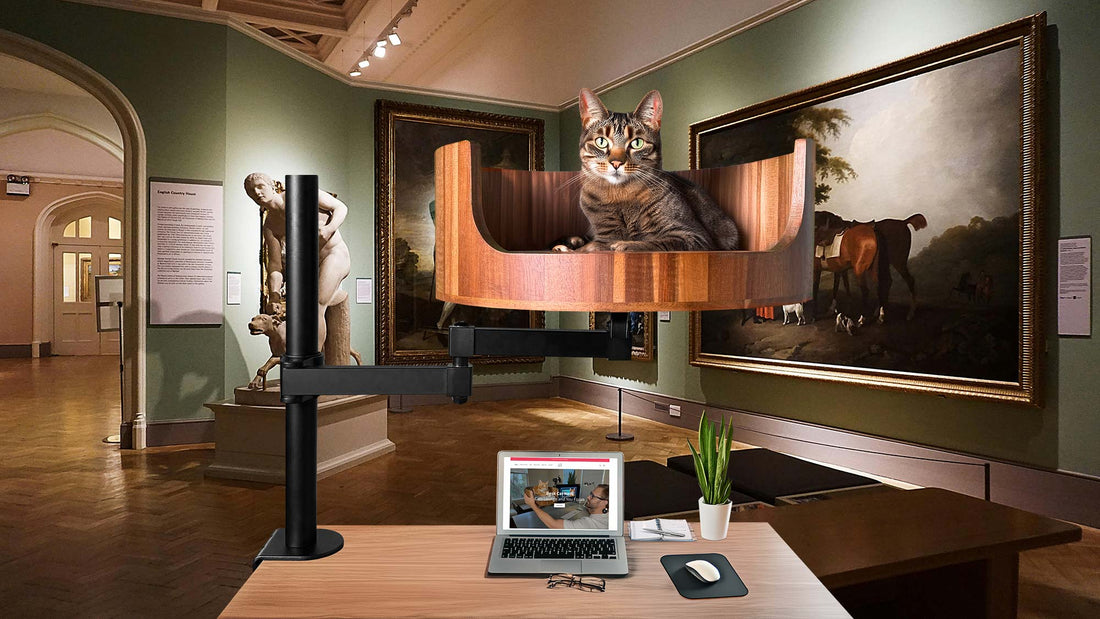
My Cat Sneezes a Lot: Causes and Solutions Explained
Share
If you have ever noticed your beloved feline friend sneezing more often than usual, you are not alone. Many cat owners experience this issue and wonder what could be causing it. In this article, we will explore the possible causes of frequent cat sneezing and provide some solutions to help alleviate the problem.
From allergies to respiratory infections, there are various reasons why your cat may be sneezing excessively. Understanding the root cause is essential in order to provide the appropriate treatment and care for your furry companion. We will discuss common triggers for cat sneezing, including environmental factors and health conditions, and offer practical tips on how to reduce your cat's sneezing episodes. By the end of this article, you will have a better understanding of why your cat sneezes a lot and how you can help them feel more comfortable and healthy.
1. Common causes of excessive sneezing in cats include allergies, viral infections, and foreign objects in the nasal passages.
2. Regular grooming and keeping your cat's environment clean can help reduce allergens that may be triggering sneezing.
3. If your cat is sneezing frequently and displaying other concerning symptoms, it's important to consult a veterinarian for a proper diagnosis.
4. Treatment options for sneezing in cats may include medications, nasal drops, or even surgery in severe cases.
5. Follow your veterinarian's recommendations for managing your cat's sneezing to ensure their health and comfort.
Causes of Excessive Sneezing in Cats
Some common causes of excessive sneezing in cats include respiratory infections, allergies, foreign objects in the nasal passage, dental issues, and feline herpesvirus. Respiratory infections can be caused by bacteria, viruses, or fungi, leading to symptoms such as sneezing, coughing, and nasal discharge. Allergies to pollen, dust, or certain foods can also trigger sneezing in cats. Foreign objects stuck in the nasal passage can obstruct airflow and irritate the lining of the nose, causing sneezing. Dental issues such as tooth decay or gum disease can also lead to nasal discharge and sneezing. Feline herpesvirus is a common viral infection in cats that can cause symptoms like sneezing, nasal discharge, and eye ulcers.
Treatment and Management Options
Treatment for excessive sneezing in cats depends on the underlying cause. If your cat has a respiratory infection, your vet may prescribe antibiotics or antiviral medications to clear up the infection. Allergies can be managed with antihistamines, steroids, or allergy shots. In cases of foreign objects in the nasal passage, your vet may need to remove the object surgically. Dental issues may require a dental cleaning or extraction of infected teeth. Feline herpesvirus is a lifelong condition that can be managed with antiviral medications and supportive care to alleviate symptoms. Additionally, keeping your cat's environment clean and reducing exposure to potential allergens can help prevent episodes of excessive sneezing.
When to See a Vet
If your cat is sneezing excessively or has other concerning symptoms such as nasal discharge, coughing, or lethargy, it's important to take them to the vet for a thorough examination. Your vet can determine the underlying cause of the sneezing and recommend appropriate treatment. Additionally, if your cat's sneezing is accompanied by difficulty breathing, pawing at their face, or bleeding from the nose, seek immediate veterinary attention as these could be signs of a more serious condition that requires urgent treatment. Regular check-ups and preventative care can help ensure your cat stays healthy and happy.
Desk Cat Nest FAQ
Is the Desk Cat Nest suitable for cats that sneeze a lot?
While the Desk Cat Nest may provide a cozy and comfortable space for your cat, it is not specifically designed to address sneezing issues. We recommend consulting with a veterinarian to determine the cause of your cat's frequent sneezing.
Will the Desk Cat Nest help reduce allergens that may be causing my cat to sneeze?
The Desk Cat Nest is made with hypoallergenic materials that can help reduce allergens in your cat's sleeping environment. However, it is important to also address any underlying allergens in your home that may be contributing to your cat's sneezing.
Can the Desk Cat Nest be easily cleaned to prevent sneezing triggers?
Yes, the Desk Cat Nest comes with a removable and washable cushion for easy cleaning. Regularly washing the cushion and keeping the Desk Cat Nest free of dust and debris can help create a cleaner environment for your cat and reduce sneezing triggers.
Is the Desk Cat Nest durable enough for cats that sneeze and scratch frequently?
The Desk Cat Nest is made with high-quality and sturdy materials that can withstand normal wear and tear, including scratching. However, if your cat has particularly aggressive scratching habits, we recommend providing additional scratching posts or toys to prevent damage to the nest.
Can the Desk Cat Nest help improve my cat's overall health and reduce sneezing episodes?
While the Desk Cat Nest can provide a comfortable and secure space for your cat to relax, it is not a substitute for proper veterinary care. Addressing the root cause of your cat's sneezing, such as allergies or respiratory infections, is essential for improving your cat's overall health and reducing sneezing episodes.
In conclusion, if your cat sneezes a lot, investing in a Desk Cat Bed could greatly benefit their health and well-being. The elevated design of the bed helps to keep them away from dust and allergens that may be causing their sneezing episodes. Additionally, the cozy and comfortable design of the bed will provide a soothing and safe space for your cat to rest and relax. By choosing a Desk Cat Bed, you can ensure that your feline friend has a comfortable and healthy environment to help alleviate their sneezing symptoms.



















































